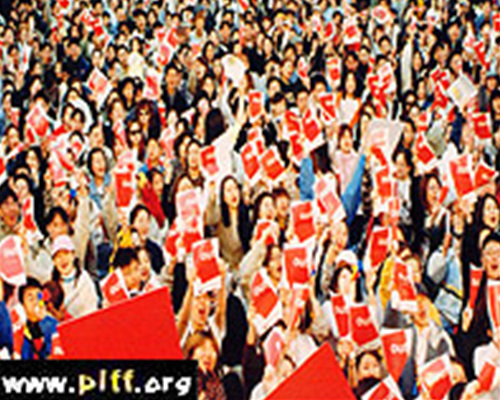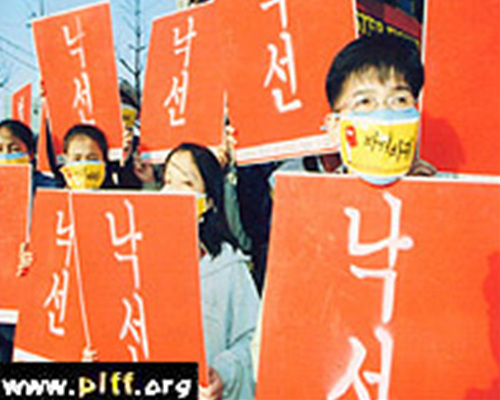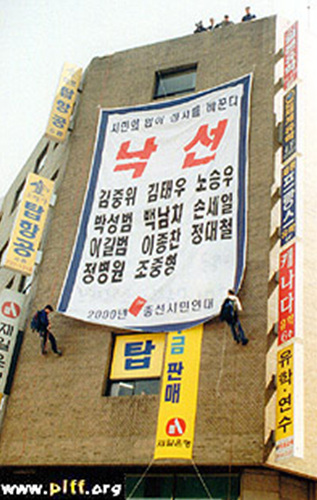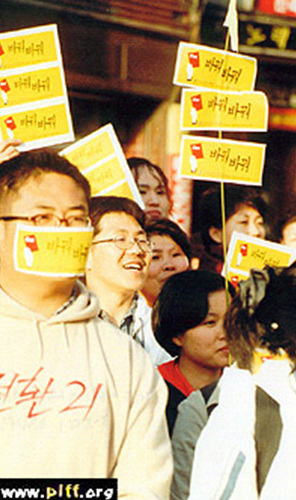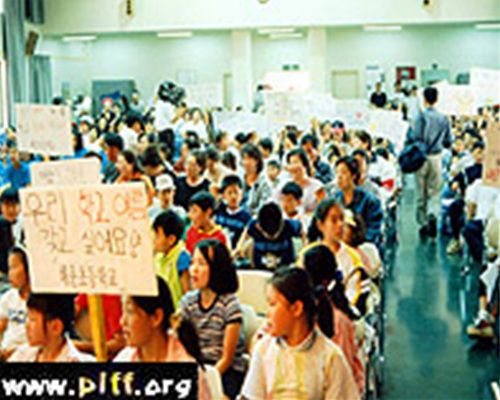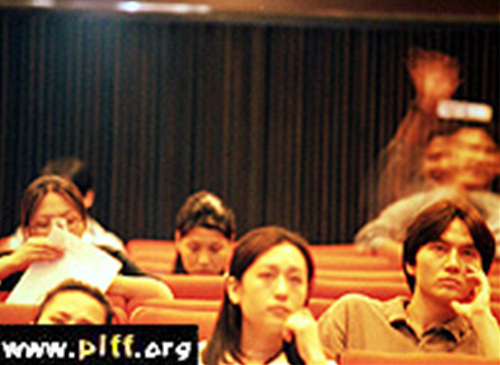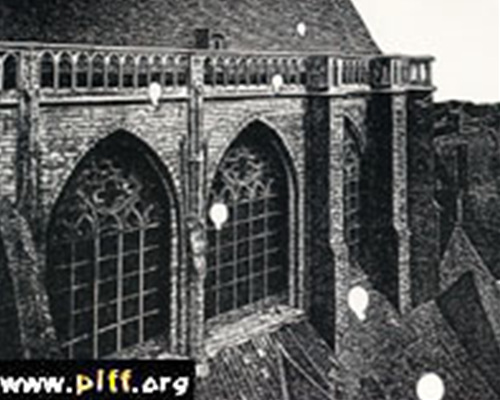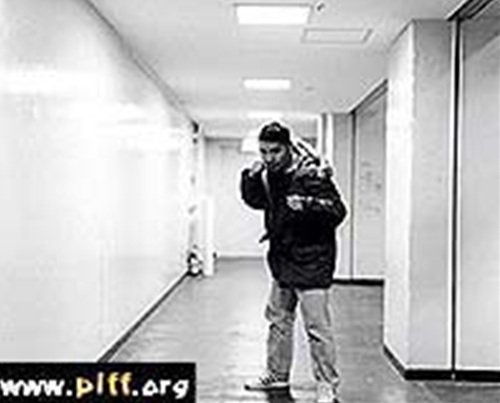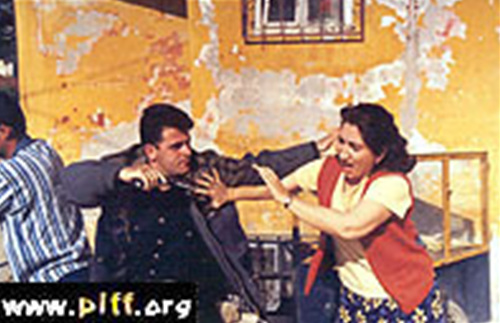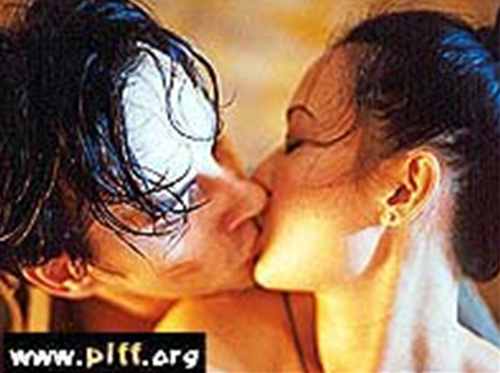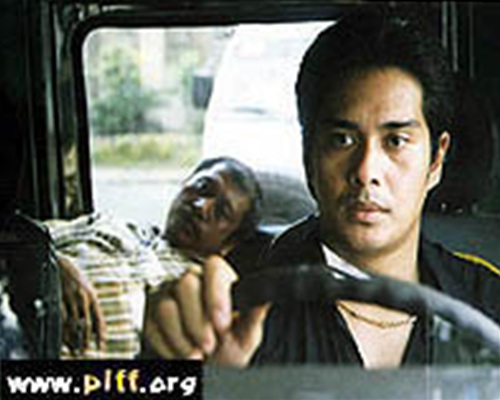영화 정보
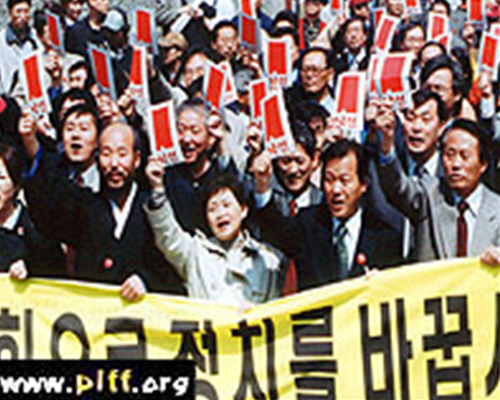
Power of People
Wide Angle
Urbanization · Social Criticism · True Story · Politics/Conspiracy
- CountryKorea
- Production Year2000
- Running Time90 min
- Formatvideo
- Colorcolor
Program Note
The star of Korean general election 2000 is none other than the word, boycott. 412 civic organizations joined together to keep corrupt and incompetent candidates from being re-elected. Campaigning for their defeat rather than victory, The ′Civil Action for 2000 General Election’ treks the entire nation and meets voters. It’s a difficult task to encourage voters about civic consciousness, especially in a society filled with regionalism and sneering nihilism toward politics by its people. What’s more, the laws on election management have too many restrictions to publicly express support or objection on a specific candidate. No loudspeakers or assemblies are allowed. The campaigning crews deliver each red card and red rose to local residents, asking them to look away from corrupt and incompetent candidates. Responses from the residents are diverse, from an old lady tenaciously disrupting their campaigning to ones occasionally beaming with satisfaction. The election result is an overwhelming victory of civic consciousness, yet it isn’t enough to overcome the deep obstacle known as regionalism. Power of People is a product of Korean independent filmmakers, long participants in social movement since the 80’s, made in conjunction with civic organizations. (Nam In-Young)
Director
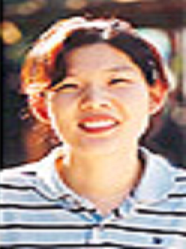
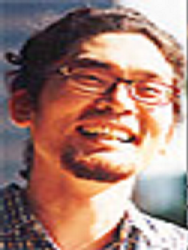

Lee An-Sook
Born in 1973, Lee An-Sook is a graduate of film studies at Chungju University. She joined Seoul Visual Collective in 1996, working as assistant director in On-Line: an Inside View of Korean Independent Film and Reclaiming Our Names. Power of People is her debut documentary work.

Oh Jung-Hun
Bom in 1968, Oh Jung-Hun has been a member of Purn Production, Korea′s premier documentary production group since 1994. His 1997 documentary The Three-legged Crow gazed upon the wave of democracy from the 80s to the 90s through the poetry of a laborer Park Noh-Hae and drew attention from various film festivals including Pusan and Yamagata.
Credit
- Director
Lee An-Sook
Oh Jung-Hun - ProducerLee Ju-Young
- CinematographyKim Jae-Hoon
- EditorKoo Seon-Hi
- MusicKim Dong Bum
- Production CompanyThe Association of Korean Independent Film & Video
kfv@coincine.co.kr - World SalesLee Ju-Young
atv@chollian.net
Photo

